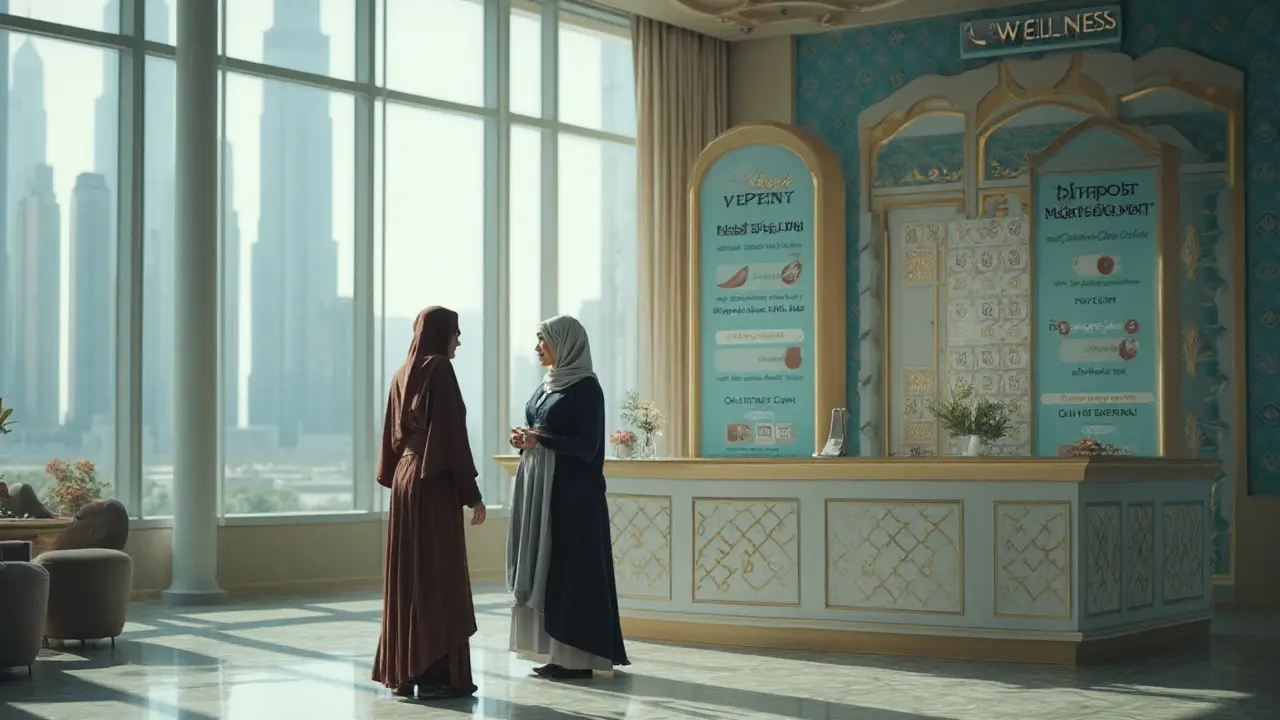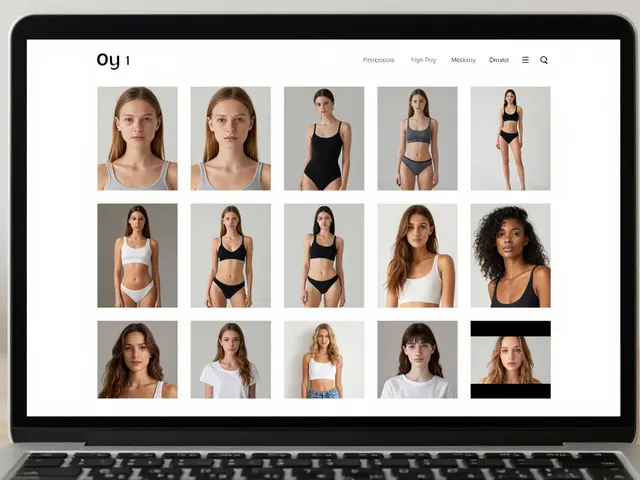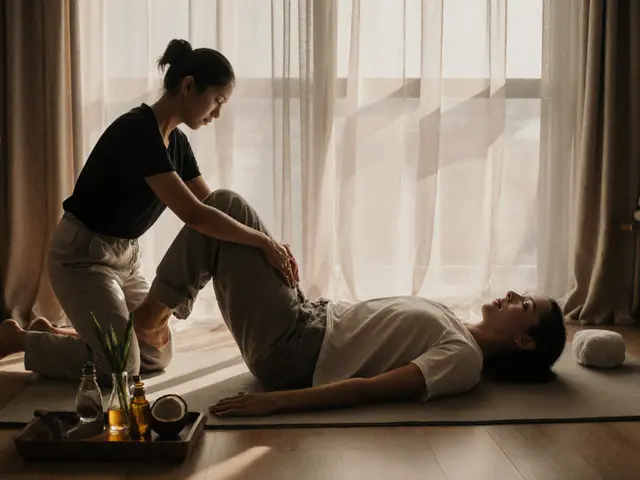You clicked this because you want a straight answer, not vague talk. Here it is: in Islam, a non-mahram woman massaging a man is not allowed except for genuine medical need with tight safeguards. If you live in or visit Dubai, it’s easy to stay within that rule-book a male therapist. Below, I’ll break down the evidence, the edge cases, and exactly how to navigate spas and clinics here without second-guessing yourself.
- Short answer: Opposite-sex massage between non-mahrams is not permissible, unless it’s a medical necessity and done under strict conditions.
- Permitted: Your wife, your mother, your sister (i.e., mahrams). For wellness/spa services, choose same-gender therapists.
- Medical exception: Allowed if there’s a real need, no qualified same-gender therapist is available, exposure is limited, no seclusion, and a chaperone is present.
- Dubai tip: Most licensed spas can assign a male therapist for men-just ask when booking. For physio, clinics usually have male practitioners.
- Rule of thumb: No need, no touch. For need, minimize touch and maximize safeguards.
Direct Answer, Evidence, and How Scholars Frame It
Let’s answer the core question first: Can a lady massage a man in Islam? For non-mahrams (unrelated men and women), the general ruling from mainstream Sunni fiqh is no. Physical touch is restricted to prevent fitnah (temptation), safeguard modesty, and respect the boundaries set by Islamic law. The clear, practical path: men choose male therapists; women choose female therapists.
What’s the evidence? The Qur’an calls for lowering the gaze and guarding modesty (Qur’an 24:30-31). The Prophet’s saying warns against khalwa (seclusion): “No man is alone with a woman except that Shaytan is the third” (reported by al-Tirmidhi and Ahmad). Classical jurists across the Hanafi, Maliki, Shafi‘i, and Hanbali schools built on these texts to rule against non-necessary touch between adult non-mahrams. Man’s ‘awrah (parts that must be covered) runs from navel to knee, but even if those areas are covered, deliberate touch by a non-mahram is still not allowed without need. You’ll find these points discussed in works like Al-Majmu‘ (al-Nawawi), Al-Mughni (Ibn Qudamah), and Radd al-Muhtar (Ibn ‘Abidin).
You might hear a hadith quoted: “It is better to be stabbed in the head with an iron needle than to touch a woman who is not lawful to you.” Scholars have debated its chain of narration, but many jurists still cite it to stress caution. Whether you take that text as firm evidence or supporting advice, the wider proof set-modesty verses, the khalwa rule, and consensus on avoiding unnecessary touch-already carries the ruling.
Now, what about exceptions? Islam isn’t trying to make life impossible. There’s the legal maxim: “Necessities permit the prohibited” (al-darurat tubih al-mahzurat), but only to the extent needed. If you’ve got a medical case (post-injury rehab, acute pain needing targeted manual therapy) and no qualified male therapist is available in a reasonable time frame, a female therapist may treat you with safeguards: no seclusion, a mahram or staff chaperone present, minimal exposure, focus only on the area of treatment, and professional boundaries. When the need ends, the exception ends.
Edge cases people ask me about in Dubai:
- “She’ll wear gloves, so is it fine?” Gloves help with professionalism, but they don’t change the core ruling about deliberate touch between non-mahrams without need. So for routine wellness, it’s still a no.
- “She’s elderly-does age make it okay?” Age doesn’t change the rule. If it’s wellness, pick a male therapist. If it’s medical necessity, apply the safeguards.
- “Foot or head massage only?” Still touch. If she’s non-mahram, avoid unless medical need with safeguards.
- “Open area chair massage in a mall?” Public space removes seclusion risk but not the touch issue. The non-mahram touch is the main concern.
- “Sports emergency on the field?” First aid to remove harm is necessity-treat, stabilize, and then switch to a same-gender therapist as soon as practical.
- “Hijama (cupping), dry needling, chiropractic adjustments?” Same rule: non-mahram touch allowed only for medical need with the safeguards.
I live in Dubai, and this is easy to practice. When my back seized after a deadlift mishap, the clinic initially assigned me a female therapist. I asked to switch and got a male sports physio the same day. Problem solved, no awkwardness. My wife, Elena, books with a female therapist-and yes, I can massage her and she can massage me at home because spouses are allowed.
Quick heuristics you can use on the spot:
- Purpose test: Is this wellness/relaxation or medical necessity? Wellness → same-gender. Medical → safeguards.
- Availability test: Is a competent same-gender therapist reasonably available? If yes, use them.
- Exposure test: Can the area be modestly draped? If not, reconsider or reschedule.
- Seclusion test: Can you ensure no khalwa (door ajar, chaperone, or visible window)? If not, fix it.
- Scope test: Treat only what’s needed; no extra rubbing/oils for comfort.
One more note on couples’ massages: A wife massaging her husband (and vice versa) is fine. In spas, “couples rooms” are also fine for married pairs-as long as each person’s therapist is the same gender as the client. In practice, many Dubai hotels can set that up if you ask.

Dubai Guide: Halal-Friendly Massage Options, What to Expect, and Pricing
Dubai makes this topic simpler than you’d think. Most licensed spas already assign same-gender therapists by default, especially in hotel properties and established chains. Just confirm at booking. For medical clinics, you can choose a male physio or chiropractor for male patients with no drama.
Types of services you’ll see around the city:
- Hotel spa massage (Swedish, deep tissue, aromatherapy): Book a male therapist if you’re a man. You’ll get a private room, draping, and a menu of durations (60/90 minutes).
- Sports massage/soft tissue therapy: Common in gyms and sports clinics; again, choose a male therapist.
- Moroccan bath (hammam): Choose male-only facilities or timings. Hammams are deeply hands-on; keep it same-gender.
- Thai/foot massage shops in malls: Many have mixed staff. If you’re a man, ask for a male therapist; if they don’t have one, skip it.
- Physiotherapy/chiropractic: Medical setting. If you truly need a specific technique, book a male practitioner. If only a female expert is available and your case is urgent, apply the safeguards (no seclusion, chaperone, minimal exposure).
- Home-service massage: For men, book male therapists only. Avoid opposite-sex home visits-that’s a double issue (touch + seclusion).
Where to look in Dubai? You’ll find solid options across Marina/JBR, Downtown, Jumeirah, Business Bay, Mirdif, and Deira. Large hotel spas and reputable clinic groups make it easy to request a male practitioner. Smaller mall shops may vary-call ahead.
What to expect during a session (wellness spa):
- Check-in: They’ll ask for preferences. Say “male therapist, please” up front. Repeat it at the door if needed.
- Room setup: Private room with a massage table, professional draping, and a focus on the back/shoulders/legs depending on your request.
- Boundaries: You set them. If an area feels too exposed, ask for extra towels or skip that area.
- Duration: 60 or 90 minutes are standard. Deep tissue will be firmer; Swedish is lighter.
What to expect during a medical session (physio/chiro):
- Assessment: Short exam, movement tests, a plan. Manual therapy may target joints or soft tissue.
- Draping and consent: Good clinics explain the technique and ask for consent. You can ask for a chaperone (some clinics provide a staff member).
- Follow-up: You’ll likely get exercises. Many patients recover in 4-8 sessions for common issues like lower-back strain.
Pricing and booking (typical 2025 ranges in Dubai):
- Hotel spa massage (60 min): AED 350-900 depending on property tier and extras.
- Standalone spa/gym massage (60 min): AED 200-450.
- Sports massage at clinics (60 min): AED 250-450.
- Physiotherapy session (45-60 min): AED 250-500.
- Chiropractic initial visit: AED 300-600 (varies with imaging/assessment).
Booking tips that keep you within the Islamic ruling:
- When you call: “I’m a male client and need a male therapist. Can you confirm?”
- If it’s medical: “Do you have a male practitioner trained in [technique]?” If not, ask when one is next available before considering any exception.
- Room policy: Ask for a chaperone option if you ever enter an opposite-sex setting for medical necessity. Keep the door slightly ajar if appropriate and modest.
- Draping: Request extra towels. Ask therapists to explain any positioning before they start.
- Receipts: For clinics, get documentation-useful for insurance and to show it was a medical visit, not wellness.
Red flags-when to walk away:
- The venue refuses to honor same-gender requests.
- Poor draping, dim red lighting, or a vibe that feels sketchy.
- Pressure to buy add-ons that increase exposure (e.g., scrub in mixed setting).
- No license on display in clinics, or unclear therapist credentials.
If you want curated picks, check our guide to the best male-only spas and sports therapy clinics in Dubai. I keep a short list because friends ask me this exact question all the time.
| Service Type | Main Purpose | Therapist Gender (Men) | Permissibility (Islamic) | Room Setup | Typical Price (AED) | Notes |
|---|---|---|---|---|---|---|
| Hotel Spa Massage | Relaxation/wellness | Male | Permissible with same-gender | Private room, draping | 350-900 (60 min) | Confirm male therapist at booking |
| Standalone Spa/Gym Massage | Relaxation/recovery | Male | Permissible with same-gender | Private room or partition | 200-450 (60 min) | Small shops: verify staffing |
| Sports Massage (Clinic) | Recovery/performance | Male | Permissible with same-gender | Treatment room | 250-450 (60 min) | Good for athletes, heavy lifters |
| Physiotherapy | Medical rehabilitation | Male ideally; female only if necessary with safeguards | Permissible; opposite-sex allowed only for necessity | Clinical room; chaperone available | 250-500 (45-60 min) | Keep exposure minimal; document the need |
| Chiropractic | Spine/joint care | Male ideally; female only if necessary with safeguards | Permissible; opposite-sex allowed only for necessity | Clinical room | 300-600 (initial) | High-contact techniques-plan draping |
| Moroccan Bath (Hammam) | Cleansing/scrub | Male only for men | Permissible with same-gender | Steam room/hammam | 200-500 | Choose men-only facilities |
| Mall Foot/Chair Massage | Quick relief | Male | Permissible with same-gender | Open area | 50-150 (15-30 min) | Opposite-sex touch still not allowed |

Decision Tools, Checklists, FAQs, and Next Steps
Use this simple decision path before you book:
- Is she your wife or a mahram (e.g., mother, sister, daughter)? If yes, massage is allowed.
- If not, is this wellness or medical necessity? Wellness → choose a male therapist. Medical → continue.
- Is a competent male clinician available soon? If yes, book him. If not, you may consider a female clinician with safeguards.
- Safeguards for necessity: no seclusion, chaperone present, minimal exposure, professional setting, treat only what’s necessary.
- Re-evaluate at each session. If a male therapist becomes available, switch.
Halal booking checklist (wellness/spa):
- Male client → male therapist confirmed in the booking notes.
- Request firm draping and skip areas you’re not comfortable exposing.
- Keep it in a licensed spa with a clean, professional environment.
- Decline any add-on that increases exposure without benefit.
Halal booking checklist (medical necessity):
- Document the need (diagnosis, pain scale, functional limits).
- Ask for a male clinician first; note earliest availability.
- If you must see a female clinician: request a chaperone, ensure the door is not fully sealed off (as appropriate for privacy and policy), and insist on minimal exposure.
- Stick to the treatment plan; no extra modalities for comfort alone.
- Switch to a male clinician as soon as one is available.
Mini-FAQ
- Can my wife massage me? Yes.
- Can my female cousin or sister-in-law massage me? No, they’re non-mahram.
- What if the therapist wears gloves? The issue is deliberate non-mahram touch, not just skin-to-glove contact. Gloves don’t make a leisure massage halal.
- Does an open salon floor make it okay? Public space removes seclusion but not the touch issue. Still not allowed if non-mahram without necessity.
- What about a quick neck rub at a mall kiosk? Same rule: avoid if it’s from a non-mahram woman.
- I’m in severe pain and only a female specialist is free today. Can I go? If it’s a genuine medical need and no male expert is reasonably available, you may go with safeguards. When a male clinician opens up, switch.
- Is there any difference between schools of law? All four Sunni schools prohibit unnecessary non-mahram touch. They all allow exceptions in necessity with limits.
- Can I bring my wife or a male friend as a chaperone? Yes; that’s wise in medical necessity cases.
Why scholars are strict here (in plain language): Islam sets fences around things that can easily slide into harm. Non-mahram touch, private rooms, soft lighting, fragrant oils-put them together and it’s easy to cross lines. The religion cuts the risk upstream: stick to same-gender for wellness; save opposite-sex touch for medical need only, and even then, with guardrails.
Key sources you can look up (no links here, but easy to find):
- Qur’an 24:30-31 (modesty and lowering the gaze)
- Hadith on khalwa: al-Tirmidhi, Ahmad (“No man is alone with a woman...”)
- Classical fiqh: Al-Majmu‘ (al-Nawawi), Al-Mughni (Ibn Qudamah), Radd al-Muhtar (Ibn ‘Abidin)
- Legal maxims: “Necessities permit the prohibited,” “Harm is to be removed,” “Hardship brings ease”
A quick word on language: you’ll sometimes hear “female masseuse male client” mentioned in policy notes at spas or community centers because this scenario comes up a lot. If you keep that phrase in mind, it’ll remind you of the default rule: non-mahram opposite-sex touch is restricted. My personal practice in Dubai is simple-if there isn’t a male therapist, I reschedule. No stress, no second-guessing.
Next steps by scenario:
- You’re new to practicing: Call any spa you like and say, “I’m a male client-please book me with a male therapist.” Done.
- You’re an athlete in-season: Build a relationship with a sports clinic that has male therapists. Set recurring bookings after training blocks.
- You’ve got sudden back pain: Book a male physio first. If wait times are long and pain is severe, ask about earliest slots, and if necessary, use the medical exception with safeguards and a chaperone.
- You’re visiting Dubai for a short trip: Hotel spas are easiest. They’re used to same-gender requests. Call concierge and specify.
One last tip: make the rule visible in your own routine. I add a note in my calendar when I book: “Male therapist only.” It avoids mistakes at the front desk, and it reminds me of the line I won’t cross. If you want a relaxed, halal-friendly way to unwind in Dubai, choose a reputable spa or clinic, confirm a male practitioner, and enjoy the session with a clear conscience.
If you’re ready to plan something now, check our roundup of male-only and family-friendly wellness spots in Marina, Downtown, and Jumeirah, then book a time that suits your schedule. You’ll feel better-body and soul.
Primary keyword to note once: female masseuse male client.







September 9, 2025 AT 13:43
Man, the whole “female masseuse male client” thing can feel like a legal maze, but the core idea is simple: stick to same‑gender therapists for routine stuff. If you’re in Dubai, most big hotels already have male staff for men, so just ask up front – they’re used to it. The medical‑need exception is real, but only when there’s no male professional available and you need urgent treatment, with a chaperone and proper draping. Think of it like any other health service: you’re allowed the help, just keep the safeguards in place. And remember, the rule isn’t about being harsh; it’s about protecting modesty and preventing slippery slopes. So, book that male therapist, enjoy the session, and keep your conscience clear.